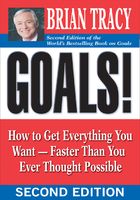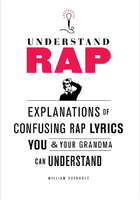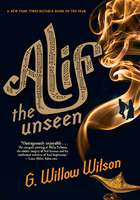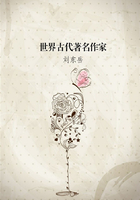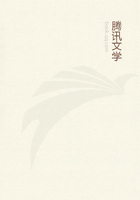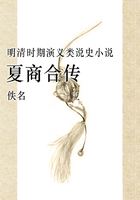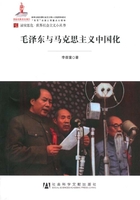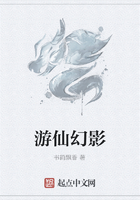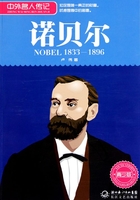Reading
With a little more deliberation in the choice of their pursuits, all men would perhaps become essentially students and observers, for certainly their nature and destiny are interesting to all alike. In accumulating property for ourselves or our posterity, in founding a family or a state, or acquiring fame even, we are mortal; but in dealing with truth we are immortal, and need fear no change nor accident. The oldest Egyptian or Hindoo philosopher raised a corner of the veil from the statue of the divinity; and still the trembling robe remains raised, and I gaze upon as fresh a glory as he did, since it was I in him that was then so bold, and it is he in me that now reviews the vision. No dust has settled on that robe; no time has elapsed since that divinity was revealed. That time which we really improve, or which is improvable, is neither past, present, nor future.
My residence was more favorable, not only to thought, but to serious reading, than a university; and though I was beyond the range of the ordinary circulating library, I had more than ever come within the influence of those books which circulate round the world, whose sentences were first written on bark, and are now merely copied from time to time on to linen paper. Says the poet M?r Camar Udd?n Mast, "Being seated, to run through the region of the spiritual world; I have had this advantage in books. To be intoxicated by a single glass of wine; I have experienced this pleasure when I have drunk the liquor of the esoteric doctrines." I kept Homer's Iliad on my table through the summer, though I looked at his page only now and then. Incessant labor with my hands, at first, for I had my house to finish and my beans to hoe at the same time, made more study impossible. Yet I sustained myself by the prospect of such reading in future. I read one or two shallow books of travel in the intervals of my work, till that employment made me ashamed of myself, and I asked where it was then that I lived.
The student may read Homer or ?schylus in the Greek without danger of dissipation or luxuriousness, for it implies that he in some measure emulate their heroes, and consecrate morning hours to their pages. The heroic books, even if printed in the character of our mother tongue, will always be in a language dead to degenerate times; and we must laboriously seek the meaning of each word and line, conjecturing a larger sense than common use permits out of what wisdom and valor and generosity we have. The modern cheap and fertile press, with all its translations, has done little to bring us nearer to the heroic writers of antiquity. They seem as solitary, and the letter in which they are printed as rare and curious, as ever. It is worth the expense of youthful days and costly hours, if you learn only some words of an ancient language, which are raised out of the trivialness of the street, to be perpetual suggestions and provocations. It is not in vain that the farmer remembers and repeats the few Latin words which he has heard. Men sometimes speak as if the study of the classics would at length make way for more modern and practical studies; but the adventurous student will always study classics, in whatever language they may be written and however ancient they may be. For what are the classics but the noblest recorded thoughts of man? They are the only oracles which are not decayed, and there are such answers to the most modern inquiry in them as Delphi and Dodona never gave. We might as well omit to study Nature because she is old. To read well, that is, to read true books in a true spirit, is a noble exercise, and one that will task the reader more than any exercise which the customs of the day esteem. It requires a training such as the athletes underwent, the steady intention almost of the whole life to this object. Books must be read as deliberately and reservedly as they were written. It is not enough even to be able to speak the language of that nation by which they are written, for there is a memorable interval between the spoken and the written language, the language heard and the language read. The one is commonly transitory, a sound, a tongue, a dialect merely, almost brutish, and we learn it unconsciously, like the brutes, of our mothers. The other is the maturity and experience of that; if that is our mother tongue, this is our father tongue, a reserved and select expression, too significant to be heard by the ear, which we must be born again in order to speak. The crowds of men who merely spoke the Greek and Latin tongues in the Middle Ages were not entitled by the accident of birth to read the works of genius written in those languages; for these were not written in that Greek or Latin which they knew, but in the select language of literature. They had not learned the nobler dialects of Greece and Rome, but the very materials on which they were written were waste paper to them, and they prized instead a cheap contemporary literature. But when the several nations of Europe had acquired distinct though rude written languages of their own, sufficient for the purposes of their rising literatures, then first learning revived, and scholars were enabled to discern from that remoteness the treasures of antiquity. What the Roman and Grecian multitude could not hear, after the lapse of ages a few scholars read, and a few scholars only are still reading it.
However much we may admire the orator's occasional bursts of eloquence, the noblest written words are commonly as far behind or above the fleeting spoken language as the firmament with its stars is behind the clouds. There are the stars, and they who can may read them. The astronomers forever comment on and observe them. They are not exhalations like our daily colloquies and vaporous breath. What is called eloquence in the forum is commonly found to be rhetoric in the study. The orator yields to the inspiration of a transient occasion, and speaks to the mob before him, to those who can hear him; but the writer, whose more equable life is his occasion, and who would be distracted by the event and the crowd which inspire the orator, speaks to the intellect and health of mankind, to all in any age who can understand him.
No wonder that Alexander carried the Iliad with him on his expeditions in a precious casket. A written word is the choicest of relics. It is something at once more intimate with us and more universal than any other work of art. It is the work of art nearest to life itself. It may be translated into every language, and not only be read but actually breathed from all human lips;—not be represented on canvas or in marble only, but be carved out of the breath of life itself. The symbol of an ancient man's thought becomes a modern man's speech. Two thousand summers have imparted to the monuments of Grecian literature, as to her marbles, only a maturer golden and autumnal tint, for they have carried their own serene and celestial atmosphere into all lands to protect them against the corrosion of time. Books are the treasured wealth of the world and the fit inheritance of generations and nations. Books, the oldest and the best, stand naturally and rightfully on the shelves of every cottage. They have no cause of their own to plead, but while they enlighten and sustain the reader his common sense will not refuse them. Their authors are a natural and irresistible aristocracy in every society, and, more than kings or emperors, exert an influence on mankind. When the illiterate and perhaps scornful trader has earned by enterprise and industry his coveted leisure and independence, and is admitted to the circles of wealth and fashion, he turns inevitably at last to those still higher but yet inaccessible circles of intellect and genius, and is sensible only of the imperfection of his culture and the vanity and insufficiency of all his riches, and further proves his good sense by the pains which he takes to secure for his children that intellectual culture whose want he so keenly feels; and thus it is that he becomes the founder of a family.
Those who have not learned to read the ancient classics in the language in which they were written must have a very imperfect knowledge of the history of the human race; for it is remarkable that no transcript of them has ever been made into any modern tongue, unless our civilization itself may be regarded as such a transcript. Homer has never yet been printed in English, nor ?schylus, nor Virgil even—works as refined, as solidly done, and as beautiful almost as the morning itself; for later writers, say what we will of their genius, have rarely, if ever, equalled the elaborate beauty and finish and the lifelong and heroic literary labors of the ancients. They only talk of forgetting them who never knew them. It will be soon enough to forget them when we have the learning and the genius which will enable us to attend to and appreciate them. That age will be rich indeed when those relics which we call Classics, and the still older and more than classic but even less known Scriptures of the nations, shall have still further accumulated, when the Vaticans shall be filled with Vedas and Zendavestas and Bibles, with Homers and Dantes and Shakespeares, and all the centuries to come shall have successively deposited their trophies in the forum of the world. By such a pile we may hope to scale heaven at last.
The works of the great poets have never yet been read by mankind, for only great poets can read them. They have only been read as the multitude read the stars, at most astrologically, not astronomically. Most men have learned to read to serve a paltry convenience, as they have learned to cipher in order to keep accounts and not be cheated in trade; but of reading as a noble intellectual exercise they know little or nothing; yet this only is reading, in a high sense, not that which lulls us as a luxury and suffers the nobler faculties to sleep the while, but what we have to stand on tip-toe to read and devote our most alert and wakeful hours to.
I think that having learned our letters we should read the best that is in literature, and not be forever repeating our a-b-abs, and words of one syllable, in the fourth or fifth classes, sitting on the lowest and foremost form all our lives. Most men are satisfied if they read or hear read, and perchance have been convicted by the wisdom of one good book, the Bible, and for the rest of their lives vegetate and dissipate their faculties in what is called easy reading. There is a work in several volumes in our Circulating Library entitled "Little Reading," which I thought referred to a town of that name which I had not been to. There are those who, like cormorants and ostriches, can digest all sorts of this, even after the fullest dinner of meats and vegetables, for they suffer nothing to be wasted. If others are the machines to provide this provender, they are the machines to read it. They read the nine thousandth tale about Zebulon and Sophronia, and how they loved as none had ever loved before, and neither did the course of their true love run smooth—at any rate, how it did run and stumble, and get up again and go on! how some poor unfortunate got up on to a steeple, who had better never have gone up as far as the belfry; and then, having needlessly got him up there, the happy novelist rings the bell for all the world to come together and hear, O dear! how he did get down again! For my part, I think that they had better metamorphose all such aspiring heroes of universal noveldom into man weather-cocks, as they used to put heroes among the constellations, and let them swing round there till they are rusty, and not come down at all to bother honest men with their pranks. The next time the novelist rings the bell I will not stir though the meeting-house burn down. "The Skip of the Tip-Toe-Hop, a Romance of the Middle Ages, by the celebrated author of 'Tittle-Tol-Tan,' to appear in monthly parts; a great rush; don't all come together." All this they read with saucer eyes, and erect and primitive curiosity, and with unwearied gizzard, whose corrugations even yet need no sharpening, just as some little four-year-old bencher his two-cent gilt-covered edition of Cinderella—without any improvement, that I can see, in the pronunciation, or accent, or emphasis, or any more skill in extracting or inserting the moral. The result is dulness of sight, a stagnation of the vital circulations, and a general deliquium and sloughing off of all the intellectual faculties. This sort of gingerbread is baked daily and more sedulously than pure wheat or rye-and-Indian in almost every oven, and finds a surer market.
The best books are not read even by those who are called good readers. What does our Concord culture amount to? There is in this town, with a very few exceptions, no taste for the best or for very good books even in English literature, whose words all can read and spell. Even the college-bred and so-called liberally educated men here and elsewhere have really little or no acquaintance with the English classics; and as for the recorded wisdom of mankind, the ancient classics and Bibles, which are accessible to all who will know of them, there are the feeblest efforts anywhere made to become acquainted with them. I know a woodchopper, of middle age, who takes a French paper, not for news as he says, for he is above that, but to "keep himself in practice," he being a Canadian by birth; and when I ask him what he considers the best thing he can do in this world, he says, beside this, to keep up and add to his English. This is about as much as the college-bred generally do or aspire to do, and they take an English paper for the purpose. One who has just come from reading perhaps one of the best English books will find how many with whom he can converse about it? Or suppose he comes from reading a Greek or Latin classic in the original, whose praises are familiar even to the so-called illiterate; he will find nobody at all to speak to, but must keep silence about it. Indeed, there is hardly the professor in our colleges, who, if he has mastered the difficulties of the language, has proportionally mastered the difficulties of the wit and poetry of a Greek poet, and has any sympathy to impart to the alert and heroic reader; and as for the sacred Scriptures, or Bibles of mankind, who in this town can tell me even their titles? Most men do not know that any nation but the Hebrews have had a scripture. A man, any man, will go considerably out of his way to pick up a silver dollar; but here are golden words, which the wisest men of antiquity have uttered, and whose worth the wise of every succeeding age have assured us of;—and yet we learn to read only as far as Easy Reading, the primers and class-books, and when we leave school, the "Little Reading," and story-books, which are for boys and beginners; and our reading, our conversation and thinking, are all on a very low level, worthy only of pygmies and manikins.
I aspire to be acquainted with wiser men than this our Concord soil has produced, whose names are hardly known here. Or shall I hear the name of Plato and never read his book? As if Plato were my townsman and I never saw him—my next neighbor and I never heard him speak or attended to the wisdom of his words. But how actually is it? His Dialogues, which contain what was immortal in him, lie on the next shelf, and yet I never read them. We are underbred and low-lived and illiterate; and in this respect I confess I do not make any very broad distinction between the illiterateness of my townsman who cannot read at all and the illiterateness of him who has learned to read only what is for children and feeble intellects. We should be as good as the worthies of antiquity, but partly by first knowing how good they were. We are a race of tit-men, and soar but little higher in our intellectual flights than the columns of the daily paper.
It is not all books that are as dull as their readers. There are probably words addressed to our condition exactly, which, if we could really hear and understand, would be more salutary than the morning or the spring to our lives, and possibly put a new aspect on the face of things for us. How many a man has dated a new era in his life from the reading of a book! The book exists for us, perchance, which will explain our miracles and reveal new ones. The at present unutterable things we may find somewhere uttered. These same questions that disturb and puzzle and confound us have in their turn occurred to all the wise men; not one has been omitted; and each has answered them, according to his ability, by his words and his life. Moreover, with wisdom we shall learn liberality. The solitary hired man on a farm in the outskirts of Concord, who has had his second birth and peculiar religious experience, and is driven as he believes into the silent gravity and exclusiveness by his faith, may think it is not true; but Zoroaster, thousands of years ago, travelled the same road and had the same experience; but he, being wise, knew it to be universal, and treated his neighbors accordingly, and is even said to have invented and established worship among men. Let him humbly commune with Zoroaster then, and through the liberalizing influence of all the worthies, with Jesus Christ himself, and let "our church" go by the board.
We boast that we belong to the Nineteenth Century and are making the most rapid strides of any nation. But consider how little this village does for its own culture. I do not wish to flatter my townsmen, nor to be flattered by them, for that will not advance either of us. We need to be provoked—goaded like oxen, as we are, into a trot. We have a comparatively decent system of common schools, schools for infants only; but excepting the half-starved Lyceum in the winter, and latterly the puny beginning of a library suggested by the State, no school for ourselves. We spend more on almost any article of bodily aliment or ailment than on our mental aliment. It is time that we had uncommon schools, that we did not leave off our education when we begin to be men and women. It is time that villages were universities, and their elder inhabitants the fellows of universities, with leisure—if they are, indeed, so well off—to pursue liberal studies the rest of their lives. Shall the world be confined to one Paris or one Oxford forever? Cannot students be boarded here and get a liberal education under the skies of Concord? Can we not hire some Abelard to lecture to us? Alas! what with foddering the cattle and tending the store, we are kept from school too long, and our education is sadly neglected. In this country, the village should in some respects take the place of the nobleman of Europe. It should be the patron of the fine arts. It is rich enough. It wants only the magnanimity and refinement. It can spend money enough on such things as farmers and traders value, but it is thought Utopian to propose spending money for things which more intelligent men know to be of far more worth. This town has spent seventeen thousand dollars on a town-house, thank fortune or politics, but probably it will not spend so much on living wit, the true meat to put into that shell, in a hundred years. The one hundred and twenty-five dollars annually subscribed for a Lyceum in the winter is better spent than any other equal sum raised in the town. If we live in the Nineteenth Century, why should we not enjoy the advantages which the Nineteenth Century offers? Why should our life be in any respect provincial? If we will read newspapers, why not skip the gossip of Boston and take the best newspaper in the world at once?—not be sucking the pap of "neutral family" papers, or browsing "Olive Branches" here in New England. Let the reports of all the learned societies come to us, and we will see if they know anything. Why should we leave it to Harper & Brothers and Redding & Co. to select our reading? As the nobleman of cultivated taste surrounds himself with whatever conduces to his culture—genius—learning—wit—books— paintings—statuary—music—philosophical instruments, and the like; so let the village do—not stop short at a pedagogue, a parson, a sexton, a parish library, and three selectmen, because our Pilgrim forefathers got through a cold winter once on a bleak rock with these. To act collectively is according to the spirit of our institutions; and I am confident that, as our circumstances are more flourishing, our means are greater than the nobleman's. New England can hire all the wise men in the world to come and teach her, and board them round the while, and not be provincial at all. That is the uncommon school we want. Instead of noblemen, let us have noble villages of men. If it is necessary, omit one bridge over the river, go round a little there, and throw one arch at least over the darker gulf of ignorance which surrounds us.


